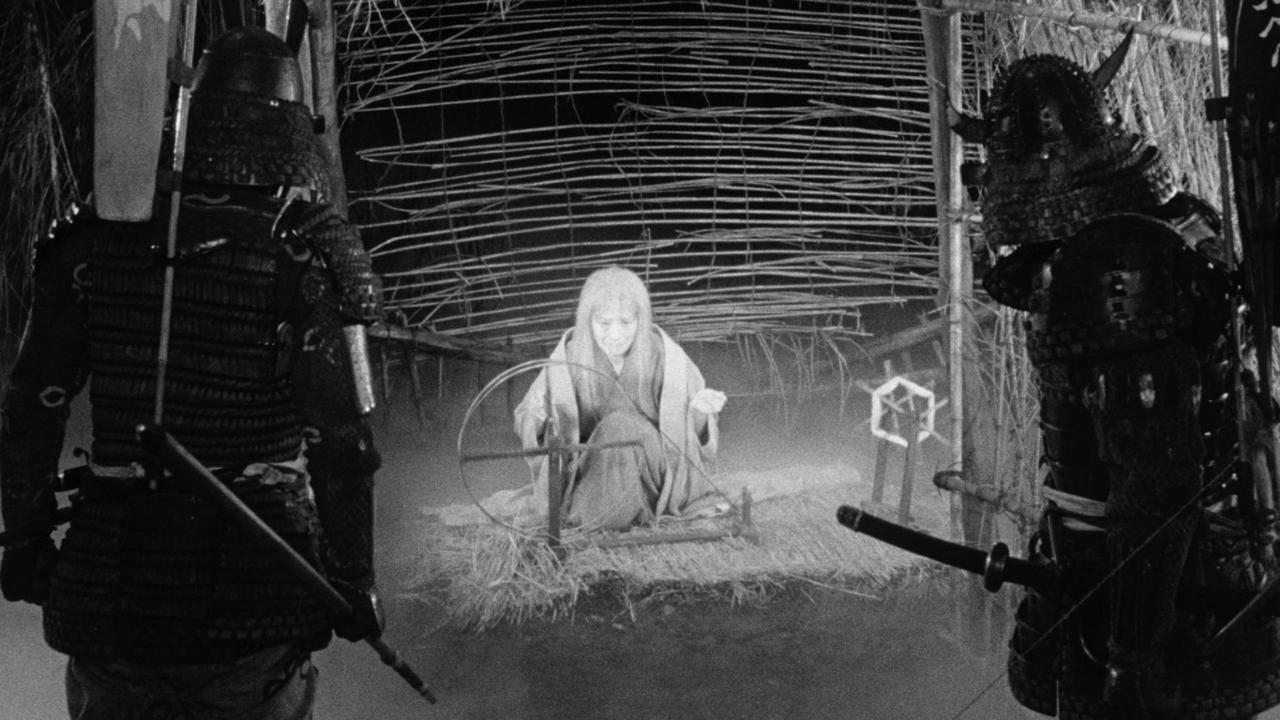Local / Global Shakespearience: IL021/IL121

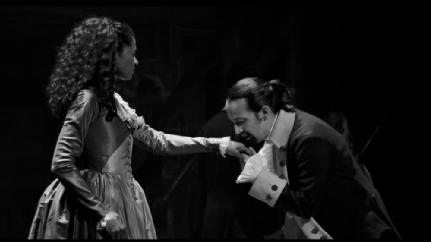
(left to right): Macbeth (2021); Hamilton (2015)
"My dearest, Angelica
Tomorrow and tomorrow and tomorrow
Creeps in this petty pace from day to day
I trust you'll understand the reference to another Scottish tragedy
Without my having to name the play"
Lin Manuel-Miranda (2015), "Take A Break", Hamilton.
Description
Have you ever been Shakespearienced?
The likely answer is yes. If you've ever watched The Lion King or Black Panther, or listened to Taylor Swift or Hamilton, then you've experienced Shakespeare. The playwright's characters, language and plot are woven into the fabric of modern popular culture and, since he set quill to parchment in sixteenth-century England, his stories have travelled across the world, impacting on the lives of countless communities and individuals.
This impact is felt on both global and local levels and, on this module, you will have the opportunity to engage with key artists who adapt Shakespeare within such local and global contexts, including climate activists, film-makers, playwrights and podcasters. You will interrogate how Shakespeare, as a global playwright, can be indigenised and used as a platform for community identity and as a tool to explore contemporary issues of politics, race, class, gender and culture.
You will also be invited to explore notions of ‘high’ and ‘low’ culture and the impact of technological innovation on the development of interdisciplinary performance forms. The dissemination of performance across cultures and technologies will be a key consideration of the module and, as a result, you will work in real time on a group project, create your own podcast episode and share the development of creative and academic materials.
Delivery
Local / Global Shakespearience consists of nine two-hour seminars and one performance field trip to a UK Shakespeare production. Each seminar will open with a roundtable discussion of the week's thematic focus and set reading/viewing. This will be followed by a practical workshop, in which you will have the opportunity to explore extracts from Shakespearean texts and adaptations and devise your own creative responses to the playwright's work. The workshop will include relaxation and warm-up exercises, games and writing activities intended to stimulate your creativity and complement the module's focus on interdisciplinary.

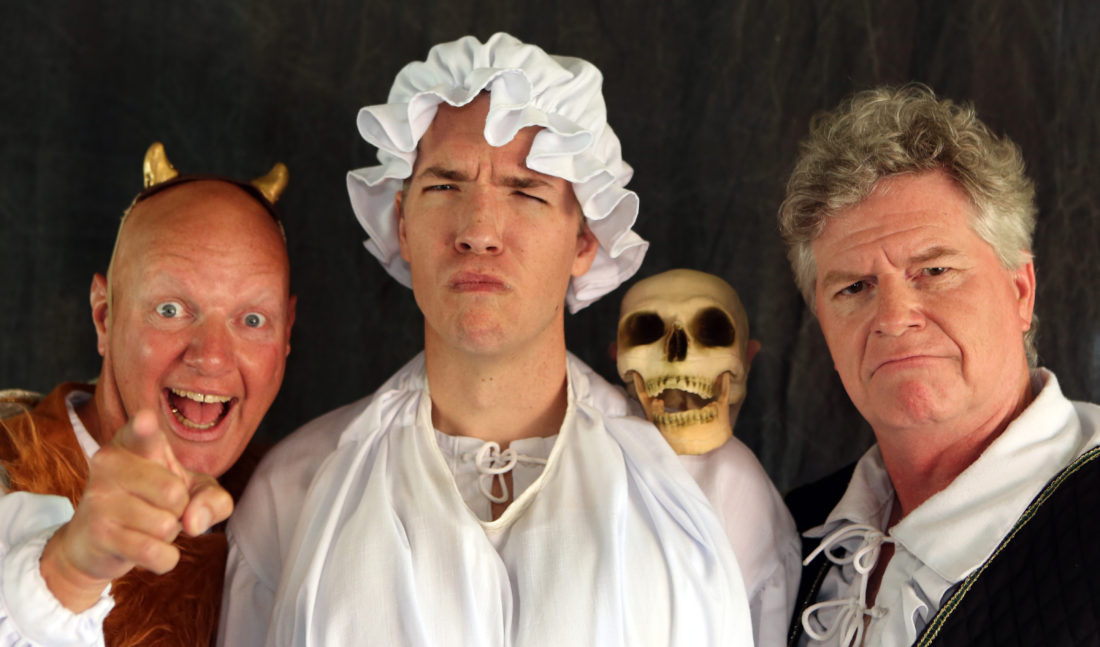

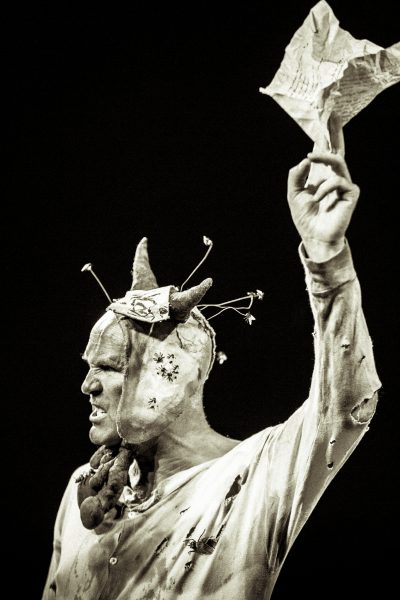
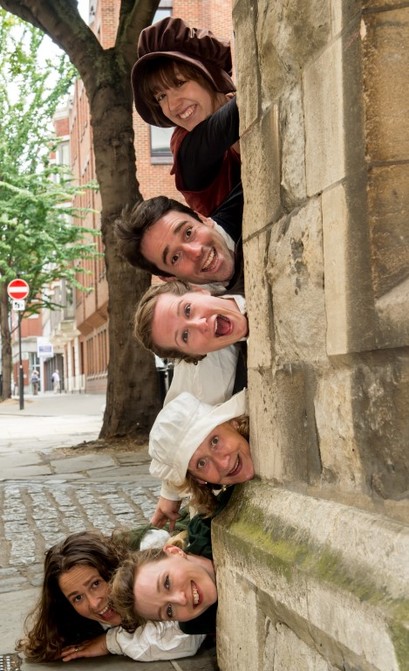

(clockwise): Devon Glover; Reduced Shakespeare Company; Spymonkey; Katie Brokaw; Impromptu Shakespeare; Tim Crouch.
The module will include partial focus on Dr Hatfull's own experience as the artistic director of Partners Rapt, allowing you to interface directly with a Shakespearean creative. Seminars will also feature some guest appearances from leading international artists and academics. Previous guest-practitioners on Hatfull's Shakespeare modules and conferences at Warwick have included Shakespearean rapper and educator Devon Glover; the Reduced Shakespeare Company's co-artistic directors Reed Martin and Austin Tichenor; Spymonkey's co-artistic director Toby Park; actor-writer-director Tim Crouch; Impromptu Shakespeare members Rebecca MacMillan and Tom Wilkinson; The Handlebards founder, actor and producer Paul Moss; The Show Must Go Online founder Robert Myles; and scholar-practitioners Professor Paul Prescott and Professor Katherine Steele Brokaw. Guest speakers will be drawn from this pool of practitioners.
Indicative Structure and Content (subject to change)
The Reading List can be found here on Talis.
It is not compulsory to read Shakespeare's plays for this module but should you wish to consult them, these are the plays which relate most closely to the adaptations and performances which we will study this term. I've included link to digital copies available on Drama Online below:
- HamletLink opens in a new window
- Romeo and JulietLink opens in a new window
- MacbethLink opens in a new window
- Henry IV Part 1Link opens in a new window
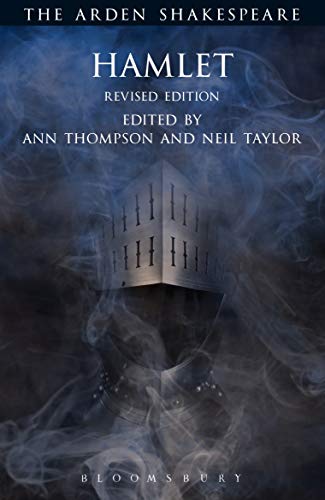
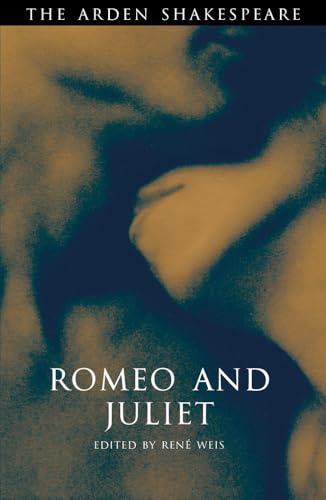
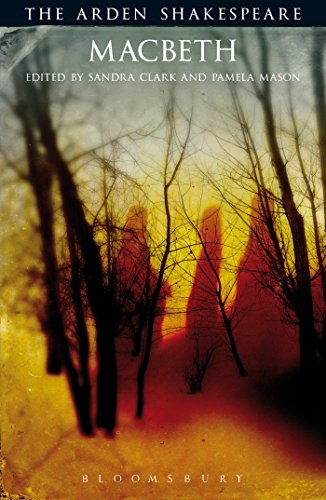
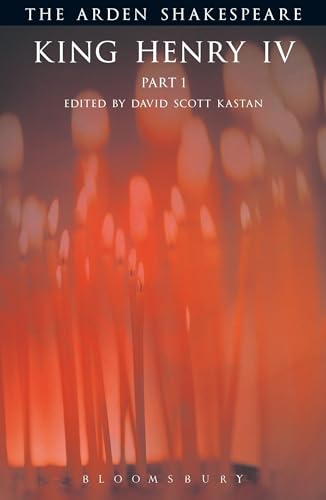
Week 1: Welcome to the Bio-Speare

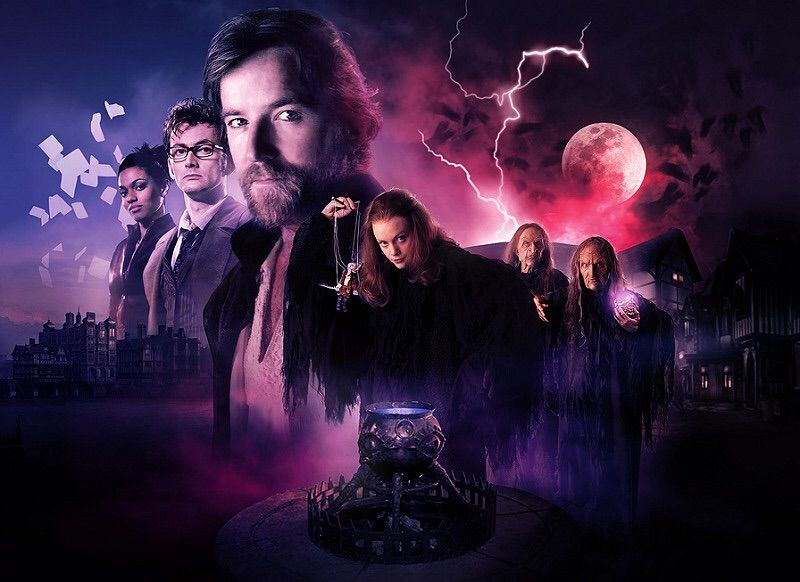
(left to right): Hamlet Sketch from Shakespeare Live! From the RSC; Doctor Who: The Shakespeare Code
Where do we find Shakespeare on a daily basis? How has Shakespeare influenced the way we speak, think and create art? In this first seminar, you will have the opportunity think about these questions, share key “Shakespeareiences” and discuss with each other how the playwright might have impacted your creative and personal lives. We will also start to determine the difference between how Shakespeare functions as both a “local” and “global” playwright in the twenty-first century.
I will introduce you to Shakespeare’s life as a working playwright in the local space of London and his increasingly globalised world. You will gain an understanding of the theatrical and social environments in which Shakespeare wrote and the growing diversity of Tudor England. We will also explore how Shakespeare’s life has been commemorated and represented on a local level in contemporary British culture through biofiction and celebrations.
Watch:
- Doran, Gregory, dir. (2016) Hamlet Sketch from Shakespeare Live! From the RSC, Royal Shakespeare Company.
- Palmer, Charles, dir. (2007) Doctor Who Season 3, Episode 2: The Shakespeare CodeLink opens in a new window, BBC.
Secondary reading:
- Blackwell, Anna (2018) ‘To Be or Not to Be (A Shakespearean)’ in Shakespearean Celebrity in the Digital Age: Fan Cultures and Remediation, Basingstoke: Palgrave Macmillan, pp. 1-30.
- Hatfull, Ronan (2020) ‘“That’s One of Mine”: Upstart cannibalism in the BBC’s Shakespearean biofiction’, Exchanges: The Interdisciplinary Research Journal, 7: 3, pp. 45-64.
- Wardle, Janice (2018) ‘Time Travel and the Return of the Author: Shakespeare in Love, “The Shakespeare Code,” and Bill’ in Borrowers and Lenders 12: 1, pp. 1-24.
Week 2: Shakespeare in the Anthropocene
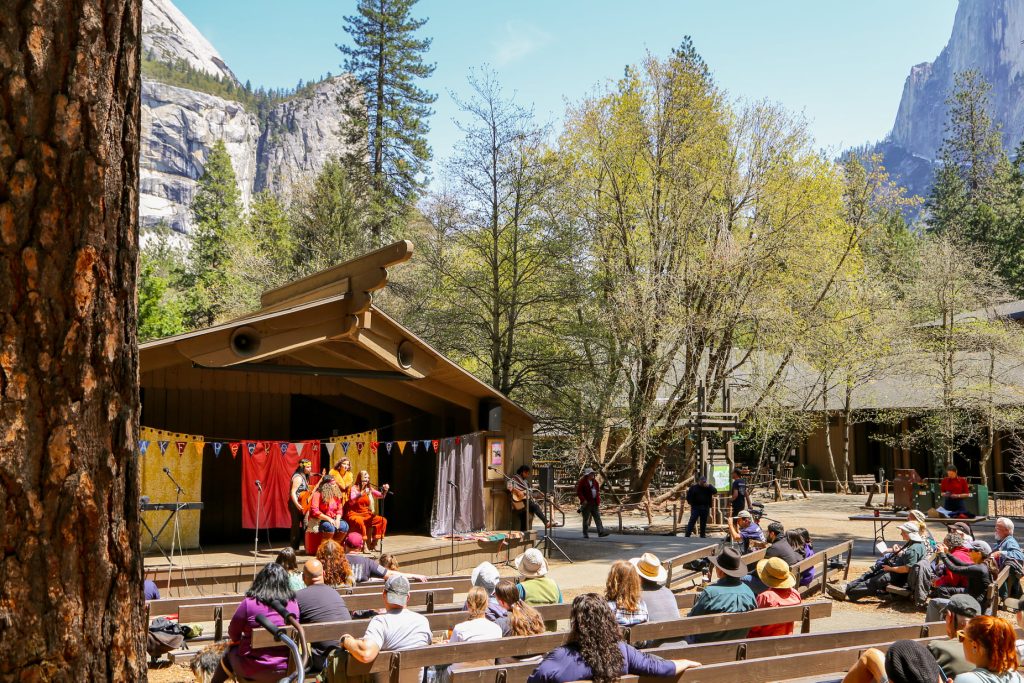

(left to right): Shakespeare in Yosemite; The Handlebards
This seminar will focus on eco-Shakespeare through the work of the Handlebards and Shakespeare in Yosemite project, the latter of which you can about which you can read more here: https://yosemiteshakes.ucmerced.edu/. We’ll discuss their most recent production of Romeo and Juliet and will be joined by the project’s founder Dr Katherine Brokaw to discuss some of the following questions:
- What is the position of Shakespeare today in our rapidly changing world?
- Who are the stakeholders in the processes of change in which Shakespeare’s works is involved?
- What are the methods by which Shakespearean performance can be made to be eco-friendly?
- How does the Shakespeare in Yosemite project seek to decolonise Shakespeare through casting practices aimed at promoting diversity in Shakespearean productions?
- What dramaturgical choices did Brokaw make in her adaptation of one of Shakespeare’s best-known tragedies?
The session will invite you to present your own theories of sustainability and reflect on textual examples from Shakespeare which resonate with the concerns surrounding climate change.
Watch:
- Brokaw, Katherine, dir. (2023) Romeo and Juliet in Yosemite, Shakespeare in Yosemite.
- Hatfull, Ronan (2021) The HandleBards and sustainable Shakespearean energy, EarthShakes Alliance.
Listen: Kourtney Smith and Elyse Sharp, ‘A Midsummer Night's Dream: Shakespeare & Climate Change with Sydney Schwindt’Link opens in a new window in Shakespeare Anyone?. Follow the podcast on Instagram at @shakespeareanyonepodLink opens in a new window and visit its website at shakespeareanyone.comLink opens in a new window.
Secondary reading:
- Brokaw, Katherine, ‘Ecological Shakespeare: Shakespeare in Yosemite and the EarthShakes Alliance’ in Shakespeare and Community Performance, pp. 221–270.
- Martin, Randall and Evelyn O'Malley (2018), ‘Eco-Shakespeare in Performance: Introduction’, Shakespeare Bulletin, 36: 3, p. 377-390.
Week 3: Shakespodding Across the Universe
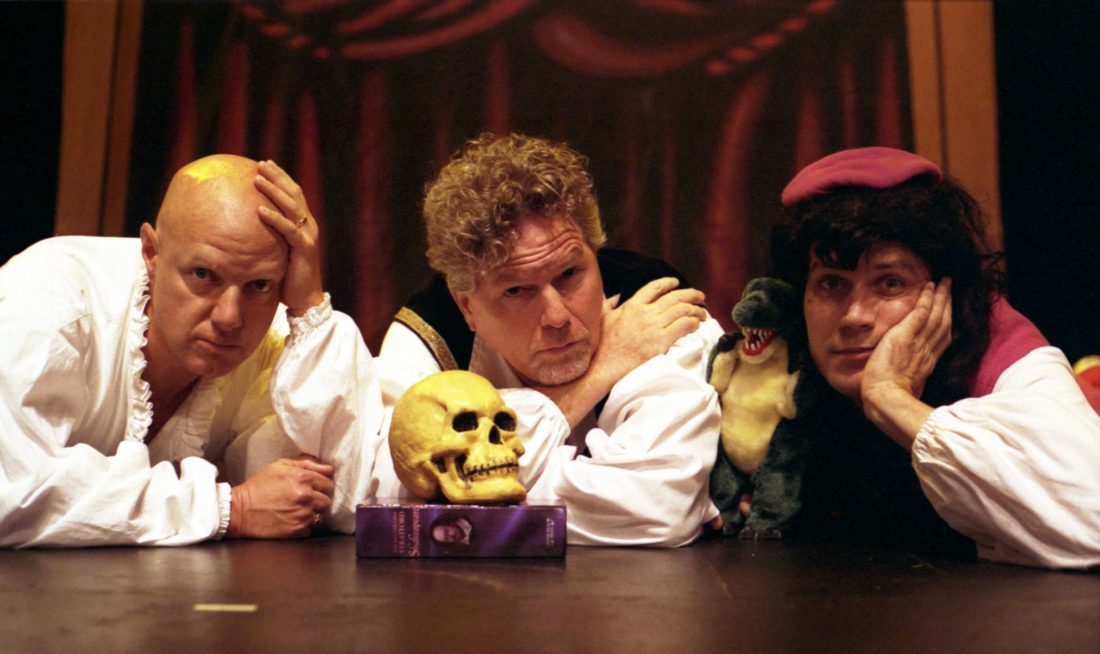
Reduced Shakespeare Company
In this seminar, we will explore how Shakespeare has been reinterpreted and repackaged within audio contexts. We will be joined by the Reduced Shakespeare Company’s Artistic Director, Austin Tichenor, who will explain the journey from the company’s six-part 1994 BBC radio series to his long-running Reduced Shakespeare Company Podcast, which has released weekly episodes since 2006. We will first discuss with him how the company adapted their first play The Complete Works of William Shakespeare (abridged) into radio form.
I will then invite you to consider how podcasts might help to make Shakespeare accessible to both local and global audiences. We’ll use Tichenor’s work as a case study for how the podcast format possesses several utilities which not only bridge the gap between perceptions of Shakespeare as highbrow or lowbrow, but also to entertain and educate in equal measure. Finally, you will have the opportunity to start developing the podcasts which form the first assessment component. These may focus on any aspect of the course, such as your experience of attending the live performance or the adaptation of Shakespeare into a different form or language.
Listen:
- Long, Adam, Reed Martin and Austin Tichenor (1994) The Reduced Shakespeare Company Radio Show, Reduced Shakespeare Company.
- Tichenor, Austin (2006-present) Reduced Shakespeare Company Podcast, Reduced Shakespeare Company (selected episodes).
Watch: Borgeson, Jess, Adam Long and Daniel Singer (1994) The Complete Works of William Shakespeare (abridged), New York: Applause Theatre & Cinema Books.
Secondary reading:
- Greenhalgh, Susanne (2007) ‘Shakespeare overheard: performances, adaptations, and citations on radio’ in Robert Shaughnessy [ed.] Shakespeare and Popular Culture, Cambridge: Cambridge University Press, pp. 175-98.
- Hatfull, Ronan (2018) “Audio Footnote Time’: Reduced for Radio’ in ‘The Other RSC’: The History and Legacy of the Reduced Shakespeare Company, unpublished doctoral thesis, University of Warwick, pp. 111-150.
Week 4: Local/Global Macbeth
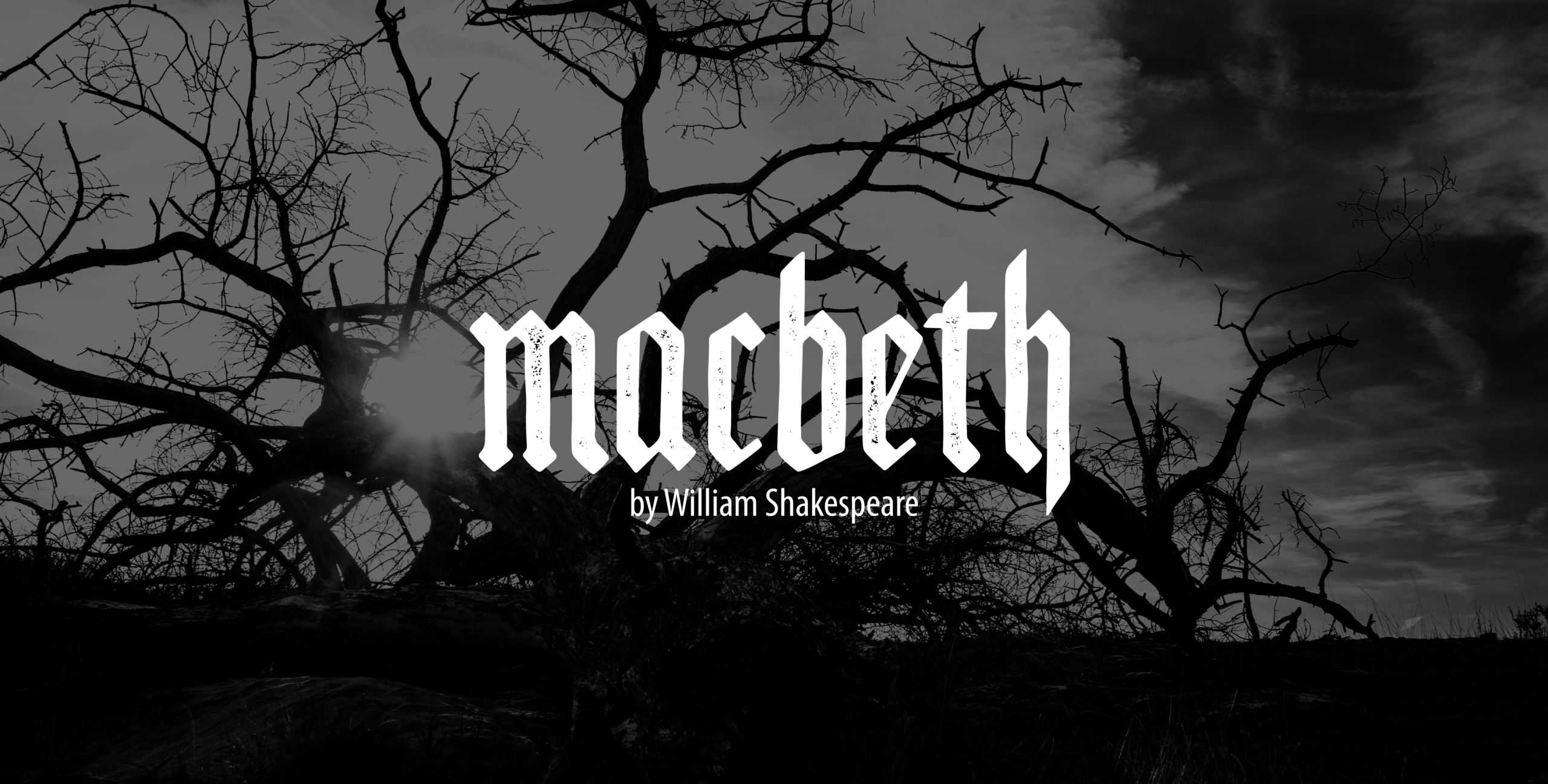
Promotional image for the Loft Theatre's Macbeth
(left to right): Maqbool; Throne of Blood
On Thursday 26th October, we will take a group trip to see the Loft Theatre’s production of Macbeth in Leamington Spa. The production begins at 7.30pm so please arrive promptly to collect your tickets. There will be an onus you to document aspects of the experience that could not be gleaned from distance, allowing you to become anthropologists and documentarians of the local. Themes of witnessing, reportage, memory, situation of self in relation to performance will be foregrounded prior to the trip. During the theatre visit, you will be encouraged to engage in cultural materialist documentation of theatre spaces, produce digital images, capture audio some of the invisible givens of events and reflect on paratextual materials such as programmes, food and foyer spaces. The documentary process will feed into your podcast assessments.
The next day we will discuss the previous evening’s field trip to see Macbeth and share the paratextual materials gathered. This will give you the opportunity to compare your various insights into the workings of a “local” Shakespeare production. We’ll also consider why there are so many productions of Macbeth taking place this and next year. Does this play speak to the present moment? We'll also consider how Macbeth speaks not only to “local” concerns but also “global” ones. This will involve exploration of two significant film adaptations of the play by Asian directors: Akira Kurosawa’s Throne of Blood (1957) and Vishal Bhardwaj’s Maqbool (2003). How do they translate Shakespeare’s play for the respective languages of Japanese and Hindi? What does the process of adaptation suggest about Shakespeare’s global legacy and Macbeth’s malleability as an enduring narrative?
Watch (one or both of):
- Bhardwaj, Vishal, dir. (2003) Maqbool, Kaleidoscope Entertainment and NH Studioz.
- Kurosawa, Akira, dir. (1957) Throne of Blood, Toho.
Secondary reading:
- Garber, Marjorie (2008), ‘Macbeth: The Necessity of Interpretation’ in Shakespeare and Modern CultureLink opens in a new window, New York: Pantheon Books, pp. 86-107.
- Lees-Jeffries, Hester (2013) ‘Introduction: Why Memory?’ in Shakespeare and Memory, Oxford: Oxford University Press, pp. 1-10.
Week 5: The Marvelous Mr Shakespeare
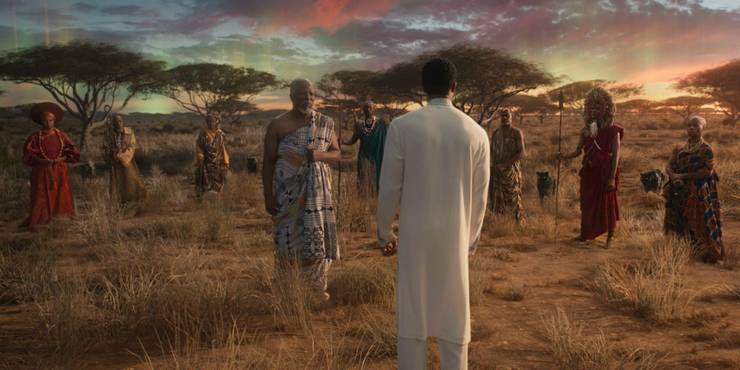

(left to right): Black Panther; Avengers: Endgame
At the start of this session, we'll pick up where we left off by musing a bit more on Maqbool and Throne of Blood. I'll then offer a brief introduction to the many ‘Shakespeare in the park’ events which take place across North America, connecting to Week 2’s focus on site specific, eco-friendly, event-led performance.
We will then turn to how this concept provided an impetus for the absorption of Shakespeare’s work and presence into the ubiquitous pop culture event of the present moment: the Marvel Cinematic Universe. This will involve interrogation of Shakespeare’s place in various entries in this blockbuster film franchise.
- Why did Marvel hire Shakespearean actor and director Kenneth Branagh to direct Thor?
- What does Tony Stark mean when he refers to Thor as ‘Shakespeare in the Park’ during The Avengers?
- Does Black Panther echo Hamlet and reconfigure the play for a more diverse audience?
- Why does Tony Stark choose a quotation from Henry IV Part 2 to impart wisdom to Spider-Man beyond the grave in Spider-Man: From Home?
- Why do creatives draw comparison between Shakespeare and Marvel?
The session will invite you to explore these questions and more, exploring how Shakespeare’s work has become increasingly globalised and heterogenous for modern audiences through its presence within franchises such as the MCU.
We'll then move on to a practical workshop where we forge further links and 'Shakespop' crossovers, taking my adaptation Henry the Thorth as a case study. Henry the Thorth was first created as part of a lockdown playreading group during the Covid-19 pandemic by Hatfull’s theatre company Partners Rapt, and later expanded into a full production at the Royal Shakespeare Company in 2022.
For next time, I ask you to construct your own creative pitch of how you imagine a Shakespeare play might be adapted within a blockbuster context.
Watch:
A selection of clips from the Marvel Cinematic Universe:
- Thor (2011):
- The Avengers (2012)
- Thor: Ragnarok (2017)
- Black Panther (2018)
- Avengers: Endgame (2019)
- Spider-Man: Far From Home (2019)
- Shang-Chi and the Legend of the Ten Rings (2021):
Read: Champion, Emily and Ronan Hatfull, dir. (2022) Henry the Thorth, Partners Rapt.
Secondary reading: Hatfull, Ronan (2019) ‘“Shakespeare in the Park?”: William Shakespeare and the Marvel Cinematic Universe’, Foundation, 48 (4): 45-57.
Week 6: Shakesplaying
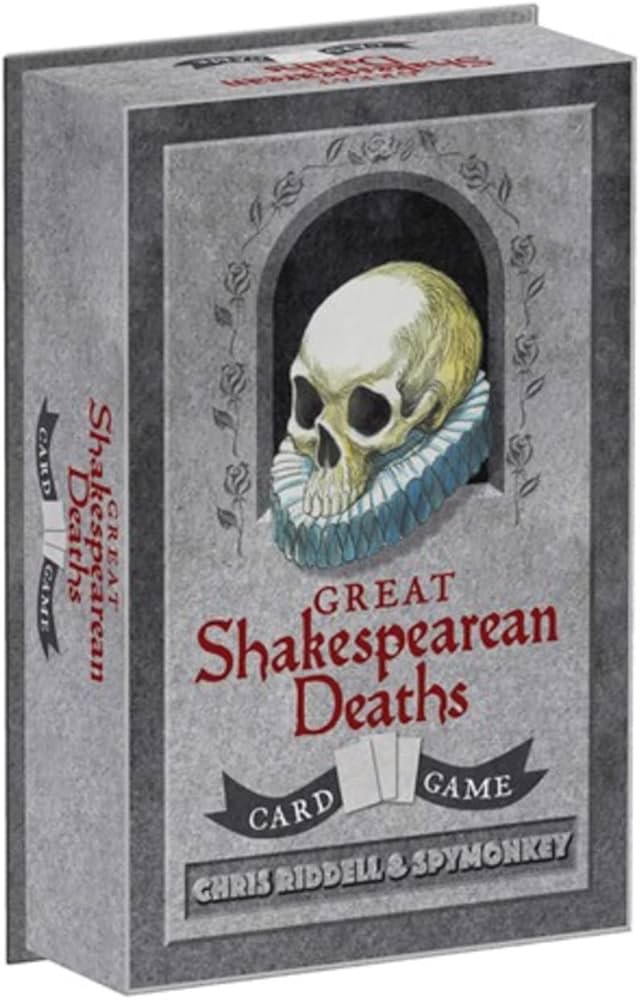
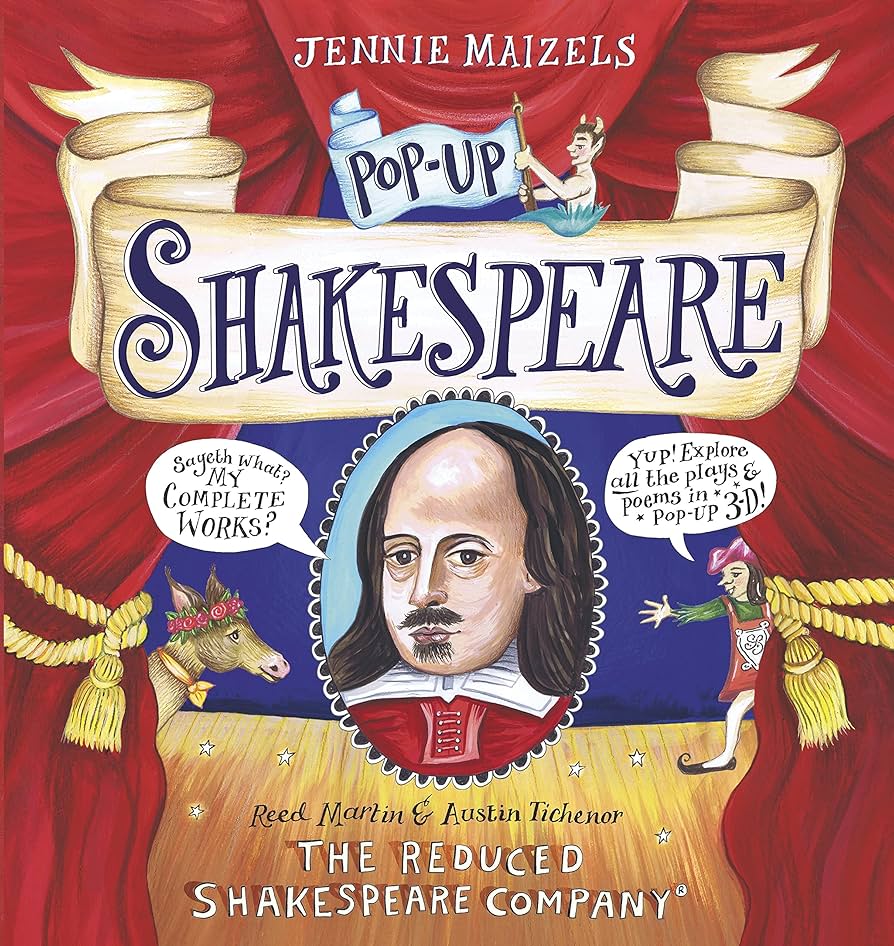
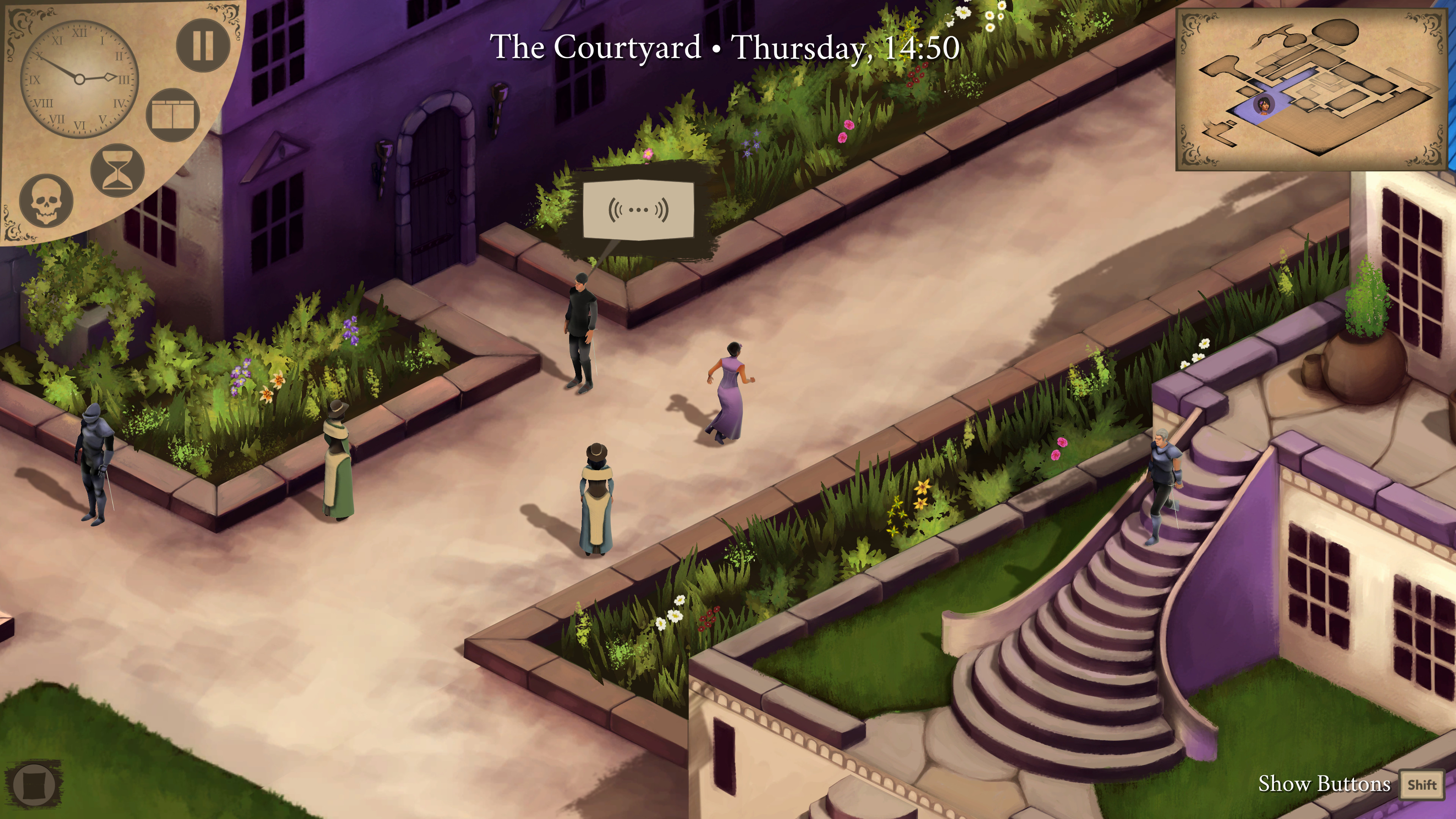
(left to right): Great Shakespearean Deaths Card Game; Pop-Up Shakespeare; Elsinore
In preparation for this seminar, I’d like you to devise a short game based around one of the Shakespeare plays or topics we’ve studied this term. You should do this in groups of 4-5, which will be assigned the previous week, and the game should be able to be played by the entire class. The seminar will begin with your games and a discussion of ideas for the practical adaptation, following last week’s speed dating session.
To help inspire you to think further about alternative methods of Shakespearean adaptations which might be addressed and approached in your adaptations, we’ll be looking how Shakespeare has been gamified and made accessible for a broader audience beyond the world of literature and theatre. These will include the Great Shakespearean Deaths Card Game which serves a companion piece to the Spymonkey production, the Reduced Shakespeare Company’s Pop-Up Shakespeare book, Zounds! A Shakespearean Card Game and the Shakespearean equivalent of Cards Against Humanity.
We’ll also delve into the world of video games by discussing how Hamlet was reconceived from Ophelia’s perspective in Golden Glitch’s 2019 adventure game Elsinore and playing the game in class. The second piece of prep for this week is to play Elsinore for a minimum of one hour prior to the seminar.
The seminar will conclude with us deciding on the groups in which you’ll work together for the next four weeks, culminating your Week 10 assessment.
Play: Golden Glitch (2019), Elsinore. Available to purchase for £7.19 and play on Steam here: https://store.steampowered.com/app/512890/Elsinore/Link opens in a new window.
Secondary reading:
- Bergan, Mckenzie (2023), ‘Theorising the Uncanny Adaptation through Hamlet’, Adaptation, 20:2, pp. 1-16.
- Flaherty, Jennifer (2021), ‘Shakespeare’s Gamer Girls’, Borrowers and Lenders 13:1, pp. 1-24.
- Novitz, Julian (2020), ‘The Time Is out of Joint’: Interactivity and Player Agency in Videogame Adaptations of Hamlet’, Arts, 9:4, pp. 1-17.
Week 7: Death to Shakespeare

Spymonkey
We’ll bring together key themes of the term so far into our study of European physical comedy theatre company Spymonkey’s The Complete Deaths (2016). This production, which condenses all seventy-five of Shakespeare’s onstage deaths into less than two hours, contains elements of abridgment, biofiction, celebration, linguistic adaptation, musical reinvention and parody.
We’ll be joined today, in person, by Spymonkey’s managing artistic director Toby Park. He will discuss the development process of The Complete Deaths, how the company condensed so much Shakespearean material, and their process of collaboration with the production’s writer and director Tim Crouch. Toby will also introduce you to some key methods of adaptation to help develop initial ideas for your group assessments.
Watch: Crouch, Tim, dir. (2016) The Complete Deaths, Spymonkey. Viewing link available on Moodle.
Secondary reading:
- Hatfull, Ronan (2021) ‘The Complete Deaths (review)’, Shakespeare Bulletin, 39:1, pp. 175-179.
- Sullivan, Erin (2022) ‘Mediated Performance’ in Shakespeare and Digital Performance in Practice, Palgrave Macmillan, pp. 109-156 (especially pp. 134-139).
- Waghorn, Jennifer Moss (2018) ‘The Bard is Dead, Long Live the Bard: Celebrations of Shakespeare’s “Corpse” and “Corpus” in 2016’, Shakespeare, 14:3, pp. 275-290 (especially pp. 282-284).
Week 8: Swiftspeare
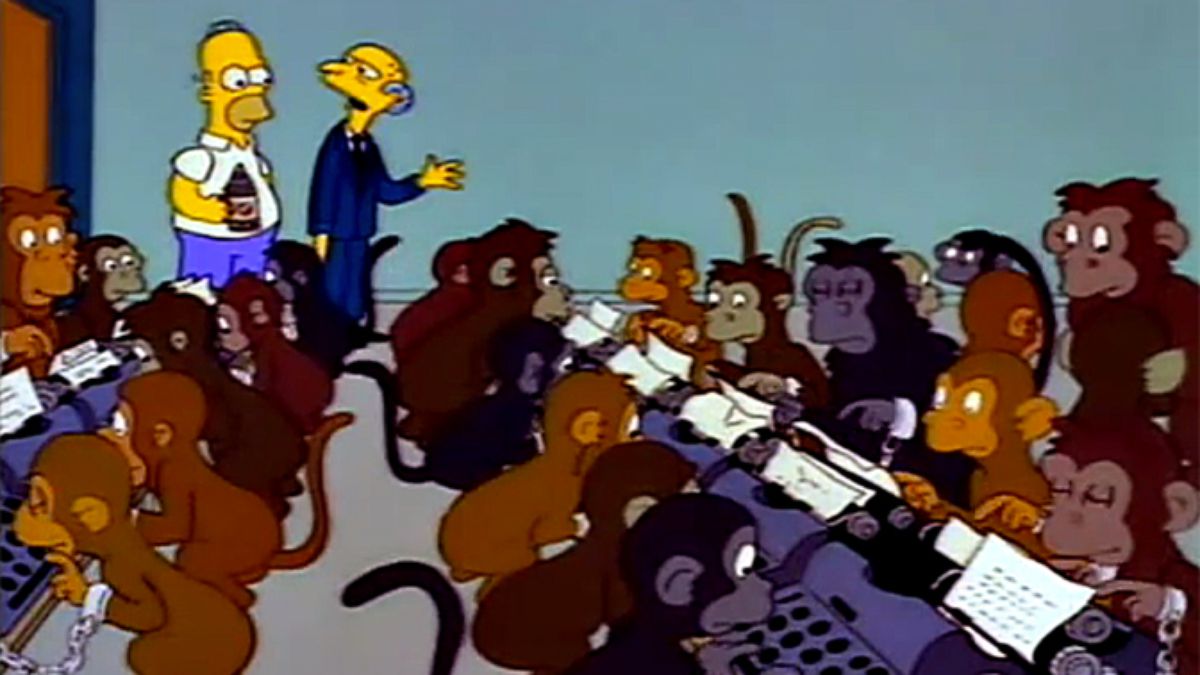
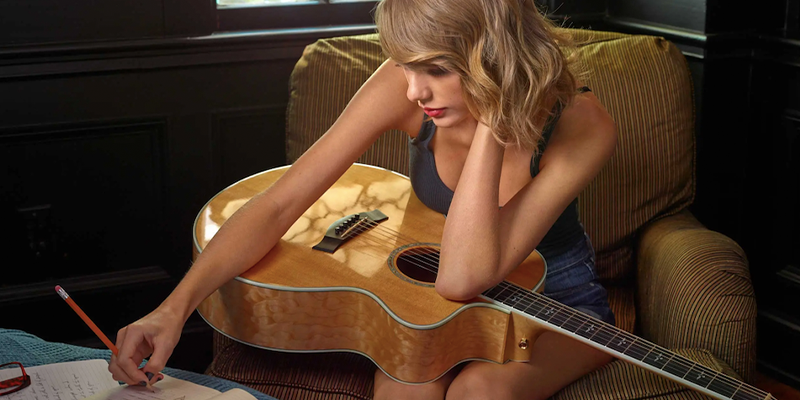
(left to right): The Simpsons: Last Exit to Springfield; Taylor Swift
If brevity is the soul of wit... play on.
In this session, we'll continue to develop your group assessments. To help inspire you and get you thinking about how to bring the topics explored this term together, we'll also explore how might encapsulate Shakespeare and, in an age of ever decreasing attention spans, communicate or interpret his meaning as swiftly as possible.
This will involve experimenting with two forms that might on the surface appear disconnected: pop music and artifical intelligence. However, the link is that both can be used to boil down the meaning of Shakespeare's work down to its raw ingredients. Songwriters such as Laura Marling, Lin Manuel-Miranda, Taylor Swift, Alex Turner and Thom Yorke have drawn from the playwright's language to inform the themes, tone and poeticism of their own work. We'll discuss key examples of artists who have engaged with Shakespeare in a musical context and think about how they capture the essence of a particular play, character or trope through a single or sustained reference, whether this be Swift, Turner and Yorke's engagement with star-crossed lovers or Miranda's extended riff on power and ambition.
Artistic integrity and originality have come under threat in recent times due to the rise of AI and platforms such as ChatGPT, which can allegedly simulate the connections which writers such as these intuit between Shakespeare's past and our present. The infininite monkey theorum states that a monkey hitting keys at random on a typewriter keyboard for an infinite amount of time will almost surely type any given text, including Shakespeare's complete works. If AI makes this illustration of mathematical probability a hypothetical reality, then what might an artificially generated version of a Shakespeare play actually look like? Are there benefits to harnessing tools such as these to find new methods of interpretation and speed up the creative process? We'll play with ChatGPT in class to produce interpretations of the plays we've explored this term, with a particular focus on what happens when you ask AI to cross Shakespeare with an aspect of modern culture.
I invite you to bring along any instruments to the seminar and, in the workshop section, you'll have the opportunity to devise some musical responses to Shakespeare. You might want to base these on the ChatGPT-generated experiments we conduct, take inspiration from a specific musician we've studied, or a combination of the two. We'll start by collectively working through some sound-based exercises and then break out into your assessment groups.
Secondary reading:
- Nazareth, John Lawrence (2023), A Shakespearean Experiment with ChatGPT, Washington State University.
- Iris H. Tuan (2020), ‘Shakespeare and Popular Culture: Romeo and Juliet in Film and Pop Music’ in Pop with Gods, Shakespeare, and AI, Palgrave Macmillan, pp. 9-39.
Week 9: Shakesprepping


Partners Rapt's Much Ado About Nothing
In this preparatory session, you will have the opportunity to develop further and rehearse your devised practical projects, prepare your presentations, and share ideas with me and the rest of the group.
Week 10: Shakespearience


Partners Rapt's Henry the Thorth
In this final session, student-devised projects will be shared, either in the form of live performance or recorded screenings. We will then hold a roundtable Q&A in which you will have the opportunity to discuss and reflect on your artistic choices and the adaptation process with myself and your peers.
Further reading list
- Bennet, Susan and Christie Carson, eds. Shakespeare Beyond English: A Global Experiment. Cambridge, 2013.
- Bickley, Pamela and Jenny Stevens, Studying Shakespeare Adaptation: From Restoration Theatre to YouTube. London: Bloomsbury Arden Shakespeare, 2021.
- Brown, Sarah Annes, Robert L. Lublin, Linsey McCulloch, eds. Reinventing the Renaissance: Shakespeare and his Contemporaries in Adaptation and Performance. Palgrave Macmillan, 2013.
- Bruhn, Jorgen, Anne Gjelsvik, and Eirik Frisvold Hanssen. Adaptation Studies: New Challenges, New Directions. London: Bloomsbury, 2013.
- Cartelli, Thomas, Repositioning Shakespeare: National Formations, Postcolonial Appropriations. London: Routledge, 1999.
- Cartmell, Deborah and Imelda Whelehan, eds. Adaptations from Text to Screen, Screen to Text. New York: Routledge, 1999.
- Carroll, Rachel. Adaptation in Contemporary Culture: Textual Infidelities. London: Continuum International Publishing Group, 2009.
- Danson, Lawrence, Shakespeare’s Dramatic Genres. Oxford: Oxford University Press, 2000.
- Garber, Marjorie. Shakespeare and Modern Culture. New York: Anchor Books, 2008.
- Gerzic, Marina and Aidan Norrie, eds. Playfulness in Shakespearean Adaptions. New York: Routledge, 2020.
- Hansen, Adam and Kevin J. Wetmore Jr., eds. Shakespearean Echoes. Basingstoke: Palgrave Macmillan, 2015.
- Hartley, Andrew, The Shakespearean Dramaturg: A Theoretical and Practical Guide. Basingstoke, 2004.
- Hodgdon, Barbara, and W.B. Worthen, eds, Blackwell Companion to Shakespeare and Performance. Oxford, 2007.
- Hutcheon, Linda. A Theory of Adaptation. New York: Routledge, 2006.
- Kaufmann, Miranda (2017), Black Tudors: The Untold Story, Simon and Schuster.
- Kennedy, Denis. Looking at Shakespeare. Cambridge, 2003.
- Kidnie, Margaret Jane. Shakespeare and the Problem of Adaptation, New York: Routledge, 2009.
- Lanier, Douglas. Shakespeare and Modern Popular Culture. Oxford: Oxford University Press, 2002.
- Leara, Margherita. Theatre and Adaptation: Return, Rewrite, Repeat. London: Bloomsbury, 2014.
- Murphy, Vincent. Page to Stage: The Craft of Adaptation. Ann Arbor: University of Michigan Press, 2013.
- Nielson, Lara D. and Patricia Ybarra, eds. Neoliberalism and Global Theatre: Performance Permutations. Basingstoke: Palgrave Macmillan, 2012.
- Purcell, Stephen. Popular Shakespeare: Simulation and Subversion on the Modern Stage. Basingstoke: Palgrave Macmillan, 2009.
- Purcell, Stephen. Shakespeare & Audiences in Practice. Basingstoke: Palgrave Macmillan, 2013.
- Radosavljevic, Duska. Theatre-Making: Interplay Between Text Performance in the 21st Century. Basingstoke: Palgrave Macmillan, 2013.
- Sanders, Julie. Adaptation and Appropriation. New York: Routledge, 2006.
- Shaughnessy, Robert, ed. The Cambridge Companion to Shakespeare and Popular Culture. Cambridge: Cambridge University Press, 2007.
- Taylor, Gary, Reinventing Shakespeare: a cultural history from the Restoration to the present. London, 1990.
- Thompson, Ayanna, Passing Strange: Shakespeare, Race and Contemporary America. Oxford: Oxford University Press, 2011.
- Wells, Stanley and Sarah Stanton, eds. The Cambridge Companion to Shakespeare on Stage. Cambridge, 2002.
Module code:
IL021 - Intermediate years
IL121 - Finalists
Module convenor
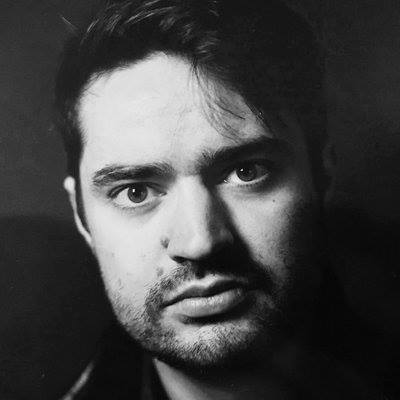
Ronan.Hatfull@warwick.ac.uk
Class time 2024-25 TBC
Class time 2023-24
Autumn term
Fridays 4-6pm
Studio 1 FAB 0.19
Registration
See instructions on the main Undergraduate Modules page
Assessment
15 CATS:
Assignment 1: Shakespearience Podcast (40%)
A ten-minute podcast to be submitted after the conclusion of the module, which responds to one aspect of the module.
Deadline: Monday 20th
November (Term 1 Week 8)
Assignment 2: Student Devised Assessment (60%) split into two parts:
1). Practical Adaptation: A group devised practical project to be shared in Week 10.
Deadline: Friday 8th
December (Term 1 Week 10)
2). Individual Reflective Journal as an Accompanying piece to this Practical Adaptation.
Deadline: Thursday 4th
January (Term 3 Week 0)


